Freight Farms Brings Greens to the Big Apple
For 2 weeks, we're showing New Yorkers what the future of farming might look like.
The farm is on display from April 30th - May 13th!
A new attraction arrived suddenly at the bustling intersection of Houston and Lafayette in the early morning of April 30th, bringing something futuristic and unexpected to a previously empty parking lot. By mid-afternoon, New Yorkers were peering curiously into the open doors of one of our container farms, attracted to this new installation by bright lights that could be seen from several blocks away.
On the side of the 40-foot container is the question, “Am I the Farm of the Future?”, a nod to the Wall Street Journal’s Future of Everything Festival taking place from May 8th - May 10th.
This is not the first time the Wall Street Journal has turned its gaze onto Freight Farms’ technology as decentralized, sustainable, and implementable alternative to the current agricultural methods. In fact, the WSJ actually featured Freight Farms in one of their first ever Future of Everything articles in 2016!
In partnering with the WSJ to bring this exhibit to life, we aimed to give the farm a unique voice. Passersby were not only greeted by warm purple lights, but by a friendly introduction to this foreign technology, that began with “I’m a farm that lives in a city”, and ended with “I could be the future of the city’s entire produce supply”. The whole idea was to get people to think critically about how we source fresh food today–especially in dense urban environments where there’s not enough land to farm locally.
While Freight Farms is not the end-all-be-all solution to urban farming (there’s plenty of rooftop, basement, community, and warehouse farms out these making a similar change), the goal was to raise awareness about the very real solutions that are out there, and get people excited about a “future” that was very quickly becoming a reality.
“One of the most fun things about being here in New York is seeing people’s faces light up at the mere idea that something like this–growing veggies in a shipping container–is even possible. Once we tell them that we’re successfully doing this in cities all over the world, they become even more excited that this ‘future’ technology is already so rooted in the present.”
Here are just a few fun moments from the farm!
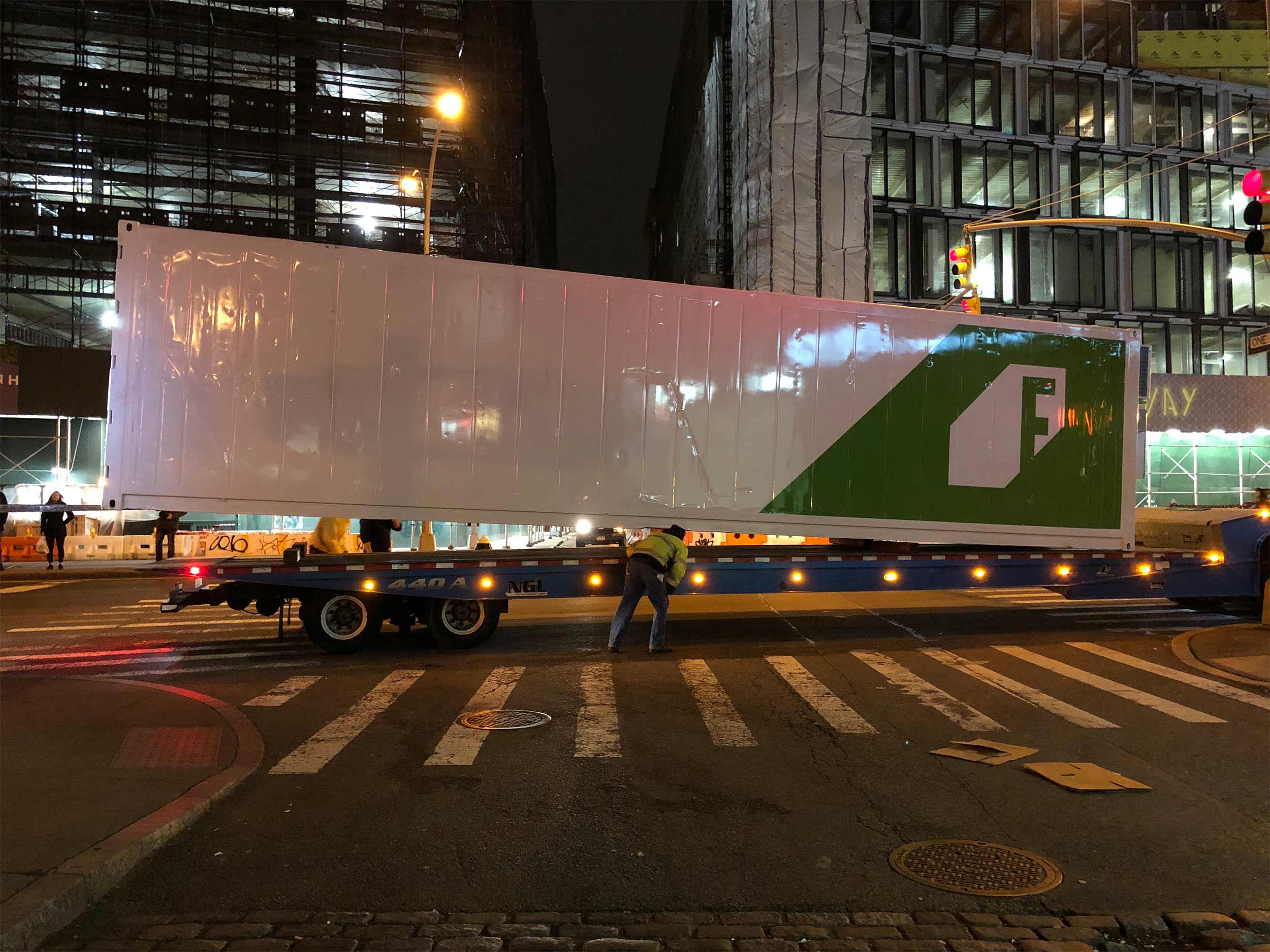
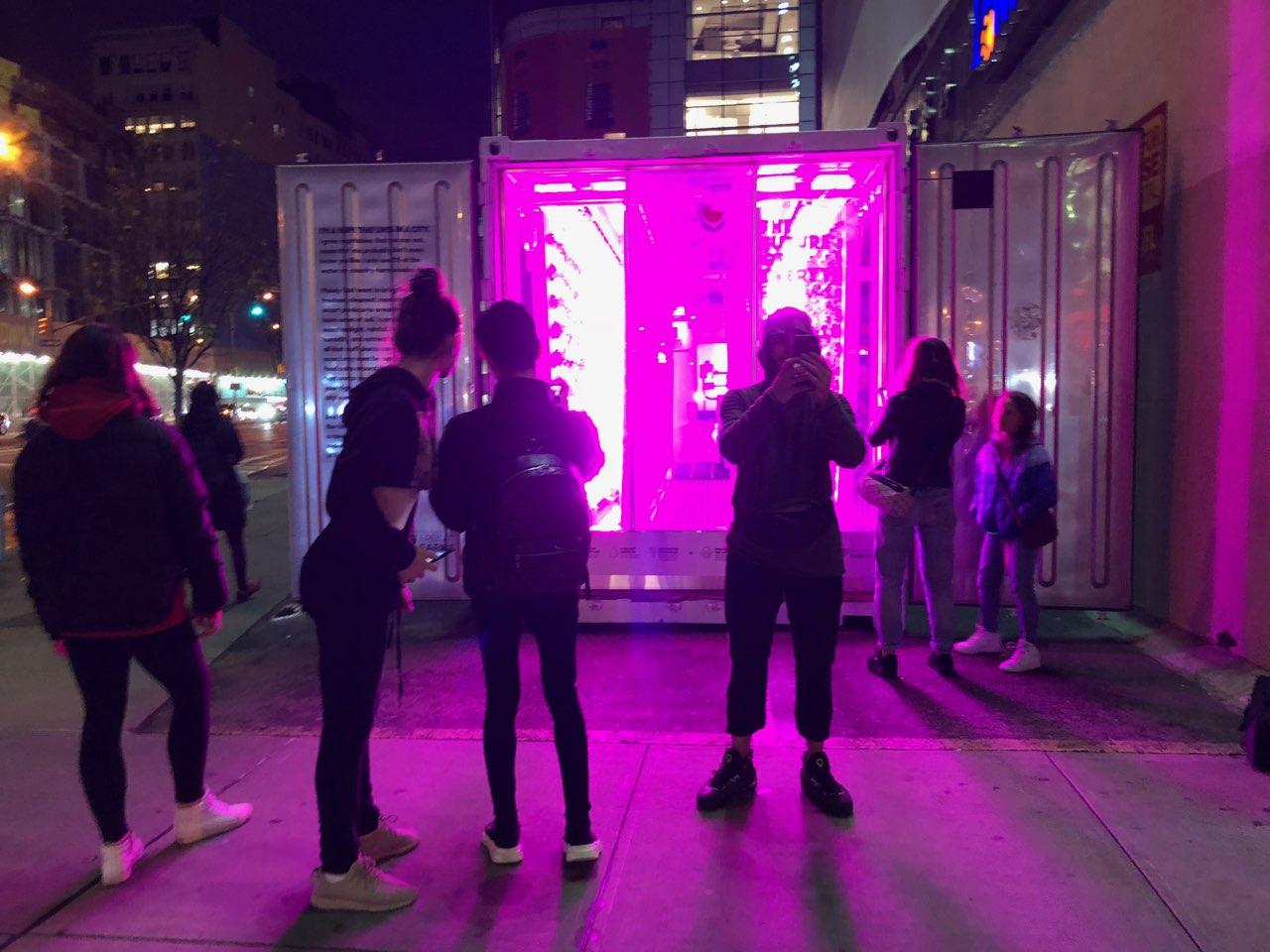
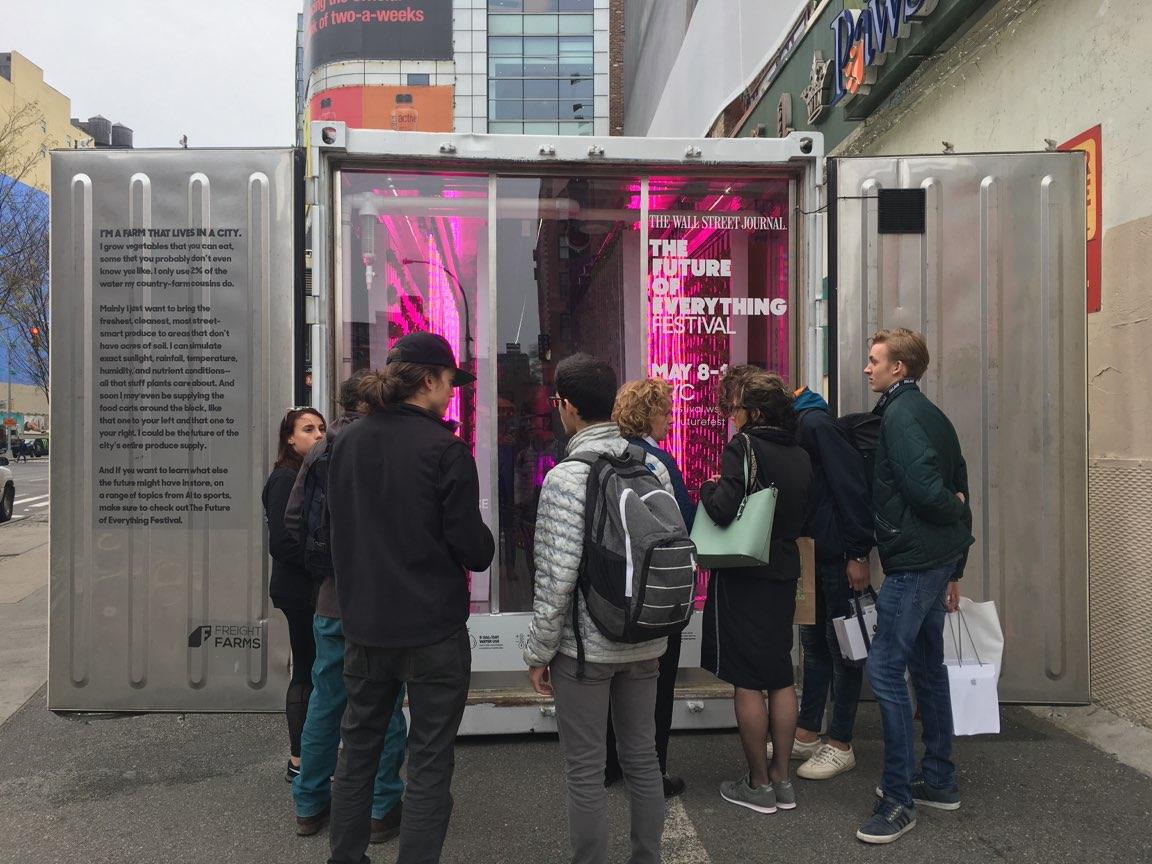
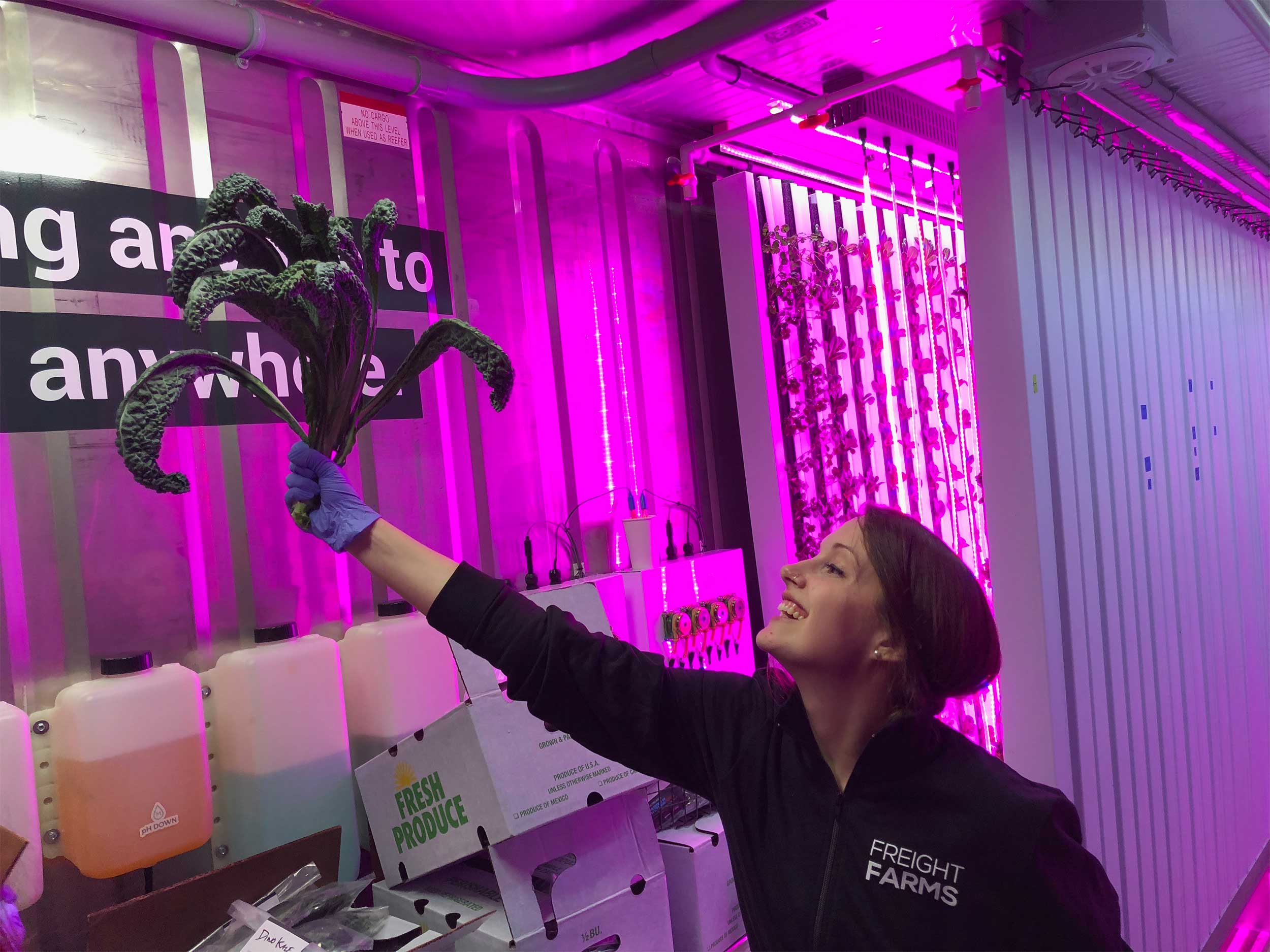
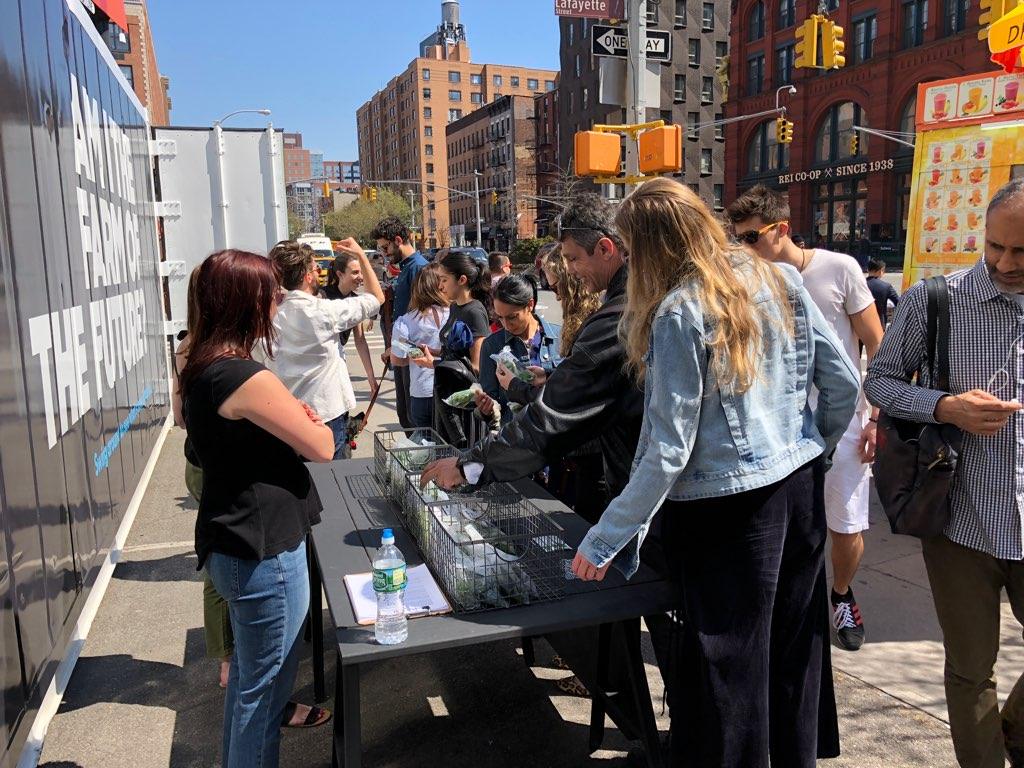
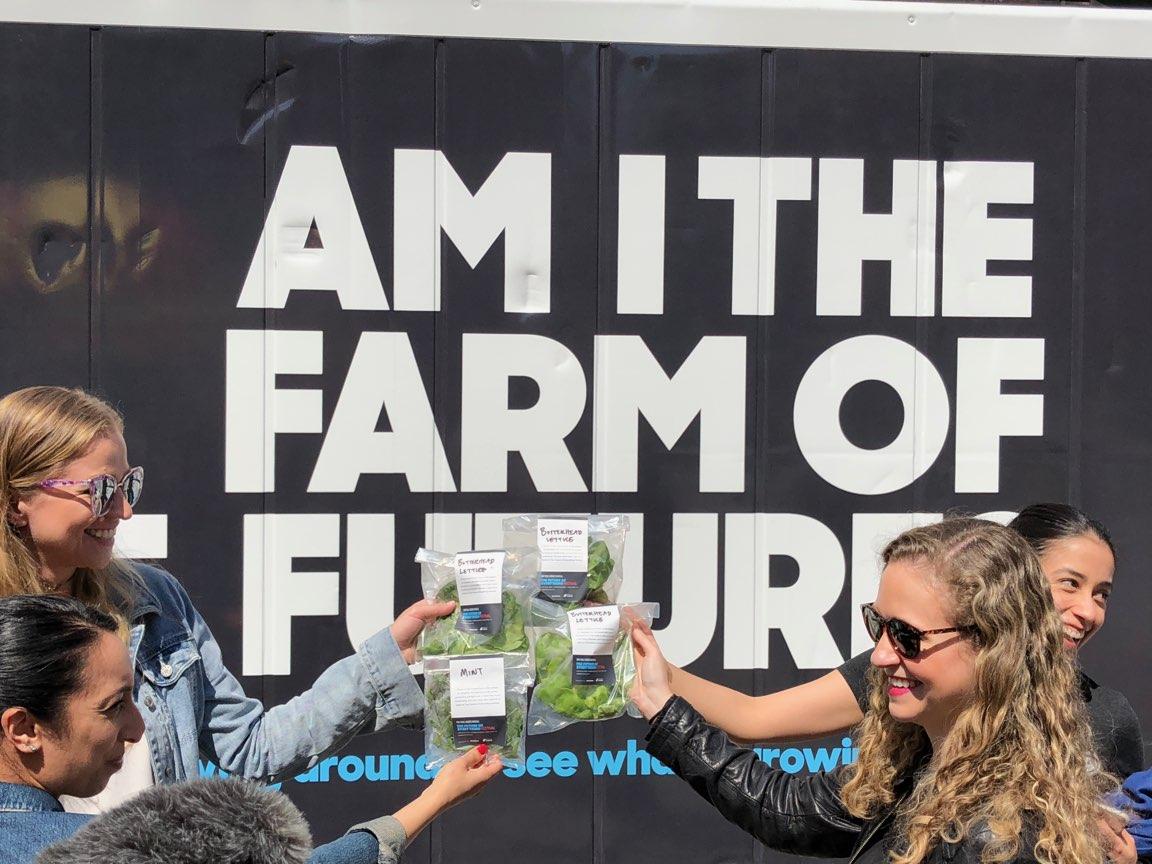
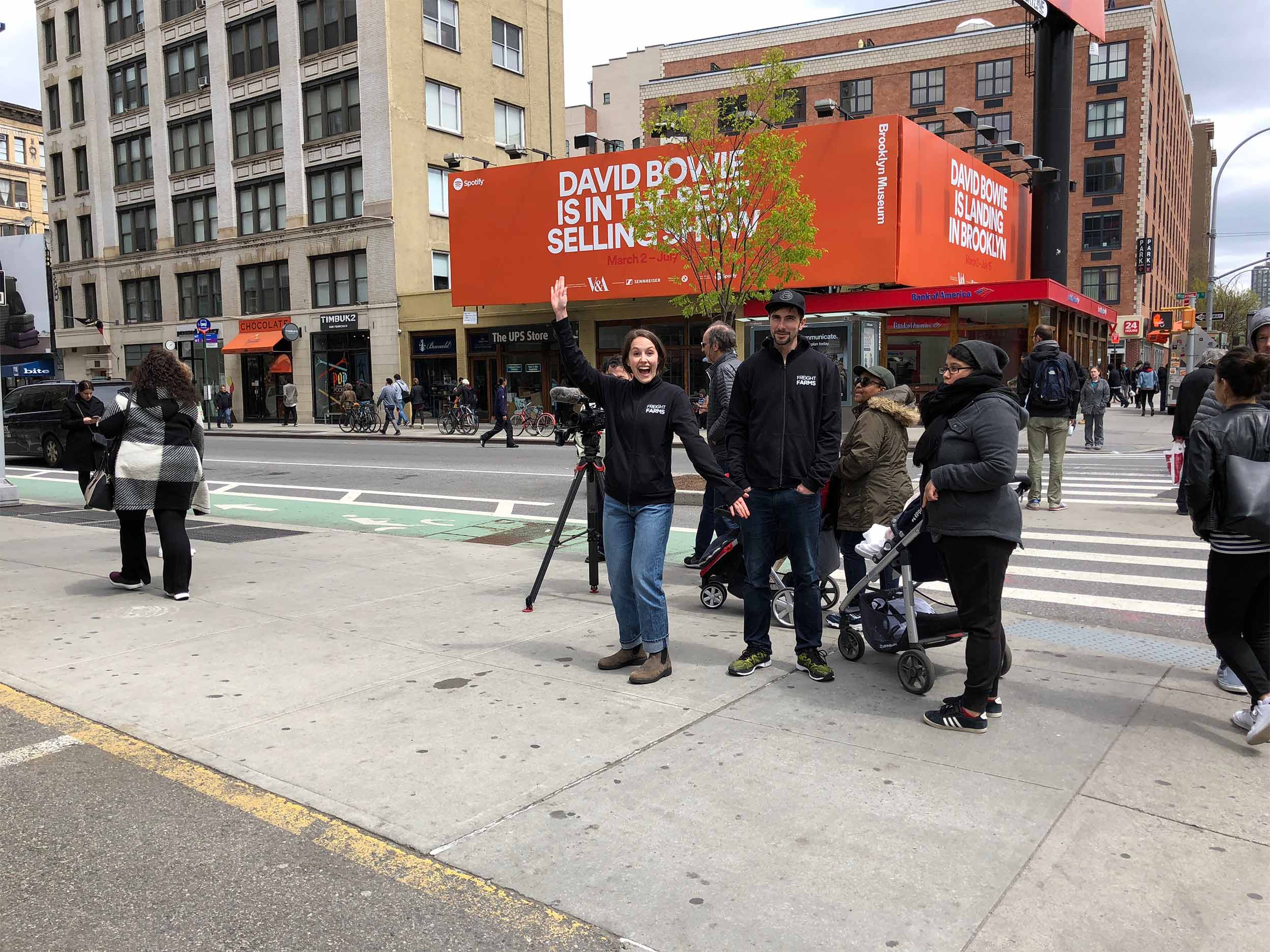
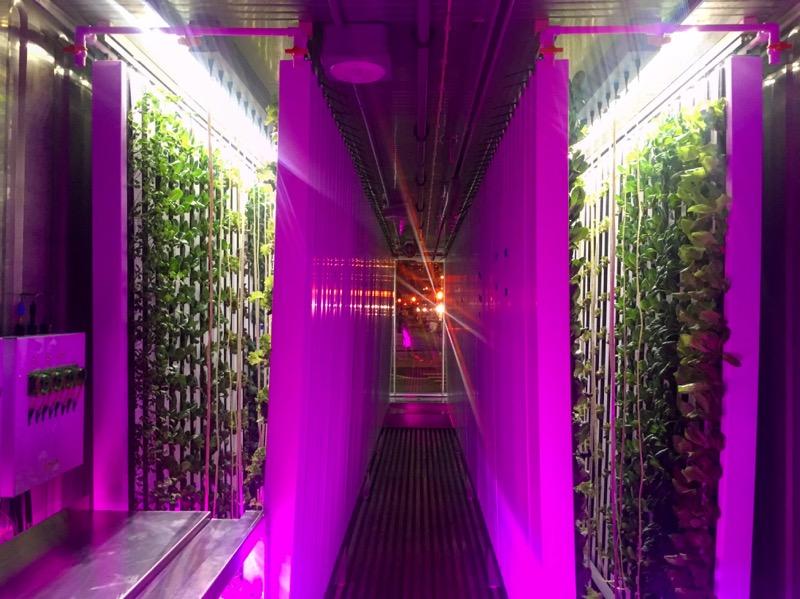
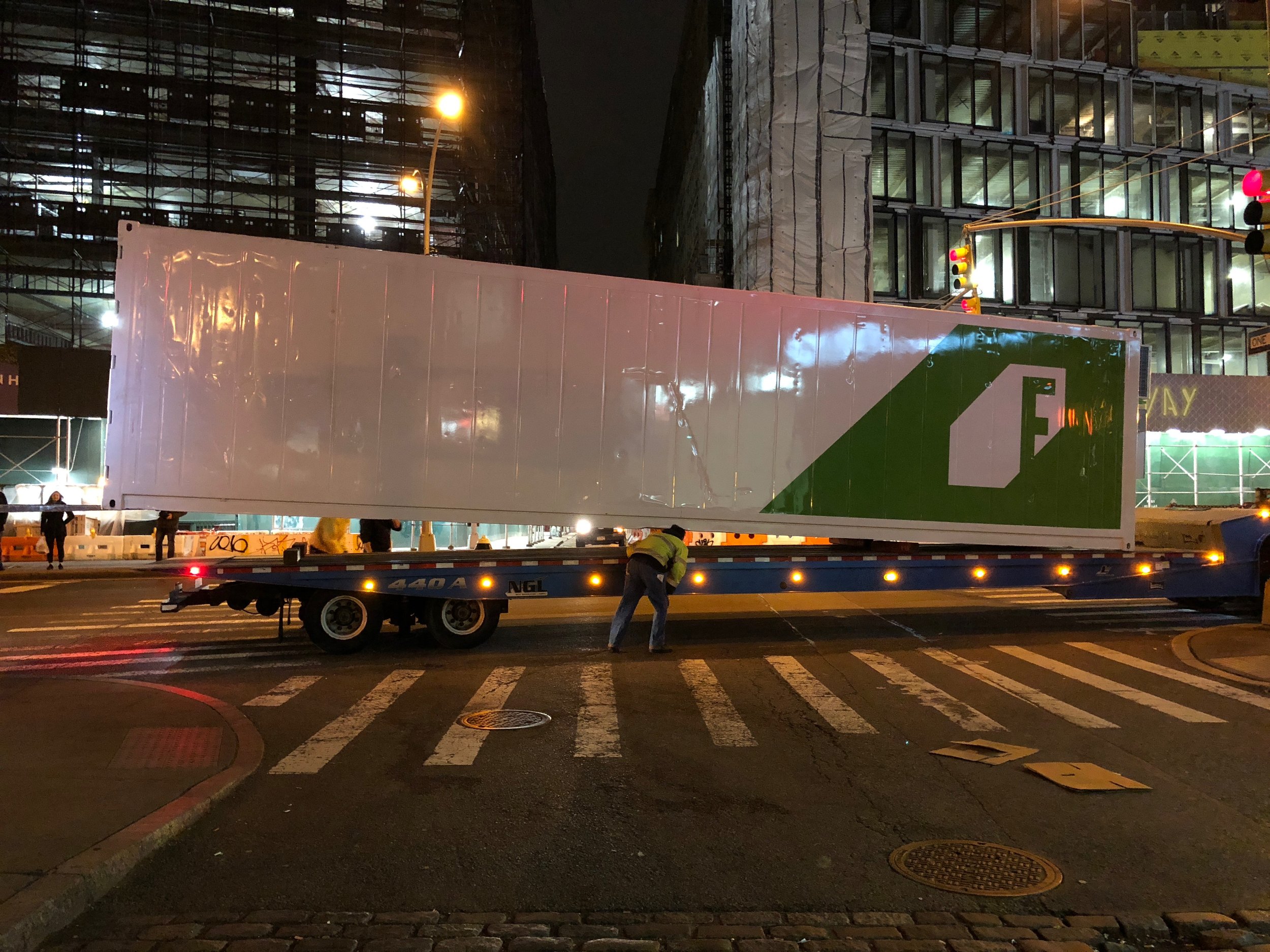
We love how curious everyone is! Our team has been at the farm since it arrived to answer any additional; we must have spoken to hundreds of people already! Here are the top questions we’ve been getting:
“Is this a concept piece?”
Nope! We’re actually a startup out of Boston that’s been working on this technology since 2010! We built our first prototype in 2012, and have now gone through 8 iterations! Today, we have about 200 of these units in 35 states and 12 countries (not counting the US) that are fully operational.
“Are you the same company as Square Roots in Brooklyn?”
We’re not, although you’re not far off! While Square Roots is an independent company, they are using 2016 Leafy Green Machines.
“Are you selling the produce inside of the container?”
No we’re not, although we will be donating a lot of what’s growing to a local food bank. Freight Farms actually specializes in designing, building, and distributing the entire unit! We sell to a variety of customers, including small business farmers, universities and schools, corporations, non-profits, and municipalities.
“So… no soil?”
Yep! It’s a fully hydroponic farm that uses nutrient-rich water to re-create the nourishment that plants normally get from soil. Not having soil is what allows us to grow vertically, which makes the container farm an incredibly dense growing environment: the 320 sq. ft. unit can grow 2-4 tons of produce every year… that’s the same as the average African elephant!
“Do the lights serve a purpose, or are they just there to look cool?”
While they do look super cool, the lights are critical for the whole thing to work! We use high-efficiency LED strips to replicate sunlight. The reason they glow purple is because we’ve isolated out the red and blue light from the full light spectrum. The plants are able to absorb red and blue light much better than other types, making the LEDs extra effective.
“How do you use so much less water than other types of farming?”
We’re really good at recycling the water. The farm is slightly tilted, so that any water that drips into the gutters and runs back into the tank to be re-filtered and re-circulated. Additionally, our dehumidifier and A/C are very efficient at capturing any water in the air. All these things combine allow us to use 0-5 gallons of water everyday, which is less than most dishwashers use per cycle.
“Why isn’t everyone doing this?!”
That’s what we’re working on! But, in all seriousness, our container farm is a sophisticated piece of machinery that requires some hard work and dedication. While it can be easier to purchase and operate a farm than find and buy farmland and learn the intricacies of soil farming, there is still a lot of learning and trial-and-error involved. The good this is that, as the network grows, so does the support! We see our farmers relying on each other heavily for advice and support, which warms our hearts. We obviously hope to see this network grow in the future as people become more and more dedicated to growing fresh and local.



